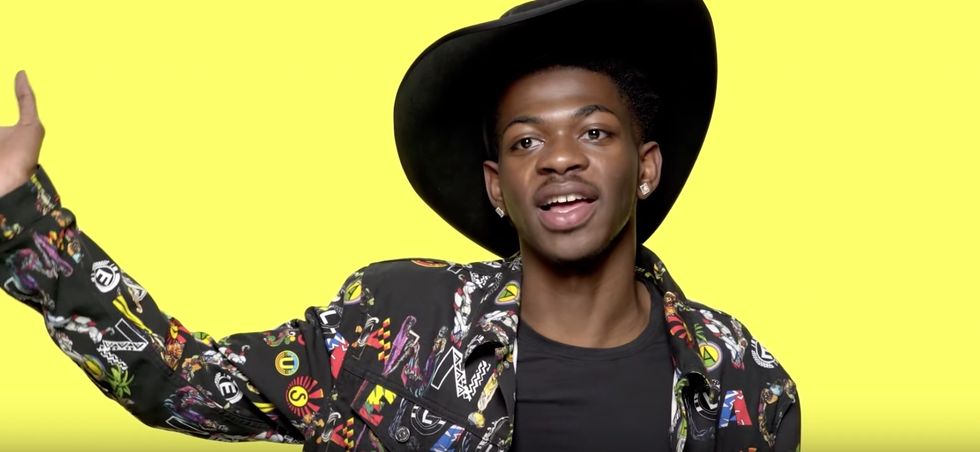Lil Nas X's new song, "Old Town Road" topped a range of Billboard charts, but when it made its way onto the Top Country 100 list, Billboard removed it, deeming the song not country enough. Billboard defended itself saying the song didn't have "elements of today's country music in its current version" but made no move to specify what these elements are. Instead of losing his moment in the spotlight, Lil Nas X ascended even further into fame as people began to argue about why the song was removed, and what it means to be a country song.
Many have called the removal of "Old Town Road" from the country chart a racist decision. While Billboard has stated that they welcome the song's blend of genres, they continue to label "Old Town Road" as rap. In response to the controversy country star Billy Ray Cyrus tweeted "It was so obvious to me after hearing the song just one time. I was thinking, what's not country about it? What's the rudimentary element of a country and western song? Then I thought, it's honest, humble, and has an infectious hook, and a banjo. What the hell more do ya need?" Billy Ray Cyrus went on to further endorse and support Lil Nas X when he and the young artist created a remix of the song together.
Billy Ray Cyrus's tweet breaks down the issue with more efficiency than the vague statements Billboard has offered. There is nothing inherently not country about "Old Town Road" yet Lil Nas X has still been excluded from this predominantly white and historically racist genre. Several of the earliest white country stars like Jimmy Rogers and Bob Wills wore blackface earlier in their careers while black artists like Arthur Alexander and O.B. Mcclinton who participated in the genre never reached the same level of fame as their white peers. Despite the fact that in recent years, country has been dominated by white people and systematically excluded black people, the genre of country music was largely influenced by black people.
Contrary to what our perceptions of the roots of country may be, distinctly "country" instruments like banjos, fiddles, and harmonicas were popularized by black culture before the Civil war. More specifically, the banjo was invented by southern black people in the 1690s. Country music is also largely influenced by the folksongs and ballads sung by slaves. Often when we picture country we imagine white cowboys and white men with pickup trucks and white country girls with white country boys, but when you look deeper it's pretty obvious that country has its roots in a lot more than whiteness.
Even with this historical context, black artists continue to be pushed away from this genre and many have talents that are never recognized because of this. Similarly to this recent event, Beyoncé's song, "Daddy Lessons" was rejected by the Grammy's Recording Academy for a nomination in the country genre. Like Billy Ray Cyrus, the Dixie Chicks backed Beyoncé up and together they released a new collab version of the song.
Institutions like the Academy and Billboard may try and tiptoe around the issue by inserting vague labels like "not country enough" but history has proven this controversy to be more about race than anything else. In our moment justifying this kind of exclusion is no longer acceptable and perhaps we should take a deeper look at what we consider to be "country elements." It seems that these elements are intrinsically tied to whiteness to the point that country songs by black people seem not country just because they are created by black people. Maybe it's time to redefine what it means to be country and to create more timely and accurate definitions for the genre.
















